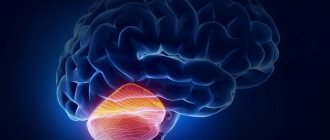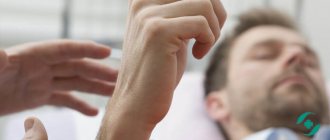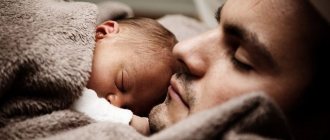Home>Articles>Dangerous consequences of simultaneous use of antidepressants and alcohol
quick menu (hide)
- Functioning of antidepressant drugs
- Alcohol while taking antidepressants
- SSRIs-antidepressants and alcohol
- Tricyclic antidepressants
- MAO inhibitors
- Alcohol with herbal antidepressants
- Antidepressants and alcohol: consequences of joint use
- Antidepressants and alcohol after completing a course of medication
Antidepressants and alcoholic drinks are incompatible things. If there is alcohol in the blood, the risk of side effects of antidepressants increases, which especially concerns the central nervous system. Let's look at why this happens.
What is the basis for the functioning of antidepressant drugs?
Basically, antidepressants are taken with the aim of increasing in the body the degree of production of hormones responsible for a favorable emotional background, normal mood, and an active mood.
After completing a course of taking such drugs, the patient begins to become interested in life, events and the people around him. The thoughts that his life is aimless and meaningless disappear.
The effect of taking such medications can be felt 14 days after starting to take the drugs, not earlier. The shortest duration of treatment is 3-4 months.
If the patient also has an alcohol addiction, then for the sake of his health and mental state he must give up alcohol for the entire duration of the course. Otherwise, dangerous side effects may occur, the effects of which will be enhanced by drinking alcohol.
Afobazole
An original anxiolytic (anti-anxiety) drug.
Afobazole is a non-benzodiazepine anxiolytic and has a new mechanism of action: through the sigma receptor system, it is able to activate the natural anti-anxiety defense of nerve cells (“endogenous anxiolysis system”).
Afobazole has a special clinical profile that is different from all other anti-anxiety drugs:
- the effect develops from the first week of administration and persists after completion of treatment;
- does not cause daytime sleepiness, dependence and addiction, as well as withdrawal syndrome;
- has not only an anti-anxiety, but also an activating effect;
- suitable for the treatment of sleep disorders associated with anxiety, as well as premenstrual syndrome and withdrawal syndrome when quitting smoking;
- compatible with most other somatotropic drugs, does not interact with ethanol.
Question answer
Is it possible to take Afobazol together with herbal sedatives and glycine?
Afobazole does not interact with herbal sedatives and glycine, so it can be taken together. However, when using combination therapy, you should consult your doctor.
What is the maximum duration of Afobazolm therapy?
Afobazole does not accumulate in the body, does not cause addiction or dependence, which makes it possible to safely carry out long courses of therapy. The duration of a course of drug use is usually 2–4 weeks; if necessary, the duration of treatment can be extended up to 3 months. As a rule, the duration of the course depends on the initial condition, its changes during therapy, concomitant diseases, and the presence of external stress factors. Upon completion of the course of therapy, it is necessary to consult with your doctor to decide on further treatment tactics.
How often can Afobazole courses be repeated? How much break should I take between courses?
Afobazole can be taken without interruption for 3 months. After stopping treatment, the effect of the drug lasts for 1-2 weeks. The duration of breaks between courses of therapy depends on your condition and is determined in each individual case by the attending physician based on the results of an assessment of your condition.
Is Afobazol compatible with alcohol?
The simultaneous use of Afobazole and alcohol is not contraindicated. However, it must be remembered that alcohol can have an adverse effect on the central nervous system, including in the presence of anxiety disorders. In addition, drinking high doses of alcohol is harmful to the body and can increase the symptoms of various diseases.
Hello, is it possible to use Afobazole together with birth control pills?
No interaction between Afobazole and oral contraceptives has been identified; joint use is not contraindicated.
How long before you can plan a pregnancy after stopping the drug?
Afobazole is quickly eliminated from the body. At the same time, after discontinuation of any drug, it is necessary to ensure that the symptoms of the condition for which the drug was prescribed have completely resolved and there is no need to continue treatment with this or any other drug. Therefore, we recommend planning pregnancy no earlier than 2 weeks after discontinuation of the drug.
Tell me, is it possible to take Afobazole during pregnancy? Thank you in advance
During pregnancy, the use of many medications is contraindicated, incl. Afobazole. Despite the fact that, according to experimental studies, Afobazole does not have a negative effect on fetal development in animals, the effects of Afobazole in pregnant women have not been sufficiently studied.
Hello, is it possible to take Afobazole while driving a car?
Afobazole does not have a sedative effect, and also does not cause a deterioration in concentration and speed of psychomotor reactions, therefore it can be taken by people driving vehicles whose activities require increased attention and quick response.
Can the drug be used in children?
According to the approved instructions, Afobazol is not used in children under 18 years of age, because No special studies have been conducted in this category of people.
Hello, is it possible to take Afobazole while taking antidepressants?
The simultaneous use of Afobazole and antidepressants is not contraindicated.
Can the drug help the first time you use it?
The drug Afobazole reduces the severity of anxiety disorders of various origins. The therapeutic effect does not develop immediately, but gradually. And although the first improvement can be felt quite quickly, a noticeable effect occurs on the 5-7th days of treatment. The optimal duration of therapy is 2-4 weeks; if necessary, taking Afobazole can be continued for up to 3 months.
Is it possible to take Afobazol during lactation?
Due to the lack of clinical data on the use of Afobazole during breastfeeding, the drug should not be taken during lactation. If it is necessary to take it, you should consider stopping breastfeeding.
What side effects can Afobazole cause?
Side effects of Afobazole include: allergic reactions; in rare cases, headaches have been described, which usually go away on their own and do not require discontinuation of the drug.
In what cases is the use of Afobazole contraindicated?
Taking Afobazole is contraindicated in case of individual intolerance to the drug, during pregnancy, during breastfeeding, as well as in children under 18 years of age.
SSRI antidepressants and alcohol: consequences
Serotonin is a signaling substance. Brain cells exchange serotonin molecules to transmit information. If a person is depressed, then he has an imbalance of serotonin.
SSRI antidepressants stabilize the patient's mood, easing the course of depression.
SSRI drugs contain the following active ingredients:
- Fluoxetine;
- Sertraline;
- Paroxetine;
- Citalopram;
- Escitalopram;
- Fluvoxamine;
- Venlafaxine;
- Duloxetine.
Alcoholic drinks should not be combined with selective serotonin reuptake inhibitors, as they increase the side effects of taking antidepressant medications. Also, such combinations can cause depressive psychosis, sexual disorders, and the appearance of hallucinations.
Difficult blood clotting, a sudden decrease or increase in blood pressure, and arrhythmia are possible. Secretory functions may deteriorate.
Complex autonomic disorders may appear.
Tricyclic antidepressants
The structure of these drugs is similar: 3 connected ring-shaped molecules. This list includes drugs that contain the following active ingredients:
- Amitriptyline;
- Clomipramine;
- Imipramine;
- Tianeptine;
- Pipofezin.
Such drugs have increased toxicity, so drinking alcohol while taking them is prohibited. Tricyclics have many serious side effects, and the presence of alcohol in the blood increases the risk of their occurrence or enhances their effects.
Tricyclic drugs are not compatible with alcohol, other medications, or certain foods.
Possible adverse reactions include the following.
- Problems with the functioning of the digestive tract (constipation, urinary retention). State of drowsiness, rapid heartbeat. Confusion of thoughts and consciousness may be recorded.
- A person gains excess weight and his blood pressure drops.
- Loss of appetite, feeling of nausea.
- Ejaculation and erection become worse.
- Convulsive attacks occur.
- Psychopathological symptoms worsen.
- Hypotension is observed.
MAO inhibitors
MAO inhibitors are active substances that slow down the enzyme monoamine oxidase. These drugs include those that contain the following active ingredients: pirlindole and moclobemide.
When taking these inhibitors, you should not drink alcohol, otherwise serotonin and tyramine syndromes may occur. Taking antidepressants and alcohol lead to depression of the respiratory center and is therefore life-threatening. It is necessary to carefully follow the diet, as there are many drugs and foods that are incompatible with MAO inhibitors.
Possible adverse reactions include:
- accelerated production of adrenaline and increase in its level;
- neutralizing the effects of an antidepressant drug when drinking alcohol;
- hypertensive attacks;
- more frequent heartbeat.
When taking MAO inhibitors, non-alcoholic beer is also prohibited. Beer contains a lot of tyramine, a substance that increases adrenaline levels. When combined with an antidepressant drug, this can lead to terrifying consequences for a person.
It is forbidden to drink even half a glass of dry wine.
Is it possible to drink alcohol with herbal antidepressants?
Mild herbal antidepressant drugs are known to have a mild calming effect. If a specialist has prescribed a person to take a course with such drugs, then drinking alcoholic beverages in this situation is not prohibited. However, you need to drink it in small doses to avoid a hangover.
The minimum break between drinking alcohol should be 7 days.
Thus, you must carefully read the instructions for the medications prescribed by your doctor. If “Antidepressant” is indicated in the “Pharmacological group” section, this means that drinking alcohol is prohibited during the period.
Real experience
They tested the compatibility of Afobazole with alcohol through personal experience.
I started taking Afobazole on the advice of a friend, and while submitting quarterly reports I just got carried away, the drug really worked. And, by the way, during the course I happened to go to a friend’s engagement party and had to have a drink. I didn’t drink anything very strong, but I had to leave early, it made me feel terribly sleepy. I don’t know if it was because of the pills or the wine...
Olga, 27 years old (accountant)
I drank both vodka and your Afobazol, I didn’t notice any difference, the next morning my head was cracking as usual. What, the instructions say that schoolchildren cannot use it? As for me, this is not a medicine, but an ordinary placebo.
Sergey, 35 years old (manager)
Antidepressants and alcohol: consequences of joint use
There is a popular belief that alcohol is an affordable and effective “antidepressant”, which is also sold without a prescription. But in reality, the euphoria felt after drinking alcohol passes very quickly.
At first, the person's mood improves, but soon he feels increased irritability, and then becomes aggressive. After sobering up occurs, problematic, tormenting situations that led to a depressive state come flooding back.
Often people try to drink alcoholic beverages every day in order to feel tolerable.
The consequences of this situation include the formation of a persistent dependence on alcohol, as well as the complete ineffectiveness of taking antidepressant medications.
Antidepressants and alcohol, which are not compatible, as confirmed by experts, make the treatment of depression useless. A person develops serious health problems that become impossible to control.
When mixing antidepressant drugs and alcohol, negative health consequences arise - the appearance of pathologies in the brain and internal organs. Adverse consequences include:
- vegetative-vascular dystonia;
- arterial hypertension;
- cirrhosis of the liver;
- increased depression.
As soon as possible
From all of the above, we can conclude that the tranquilizer “Afobazol” has zero compatibility with alcohol. If the patient is taking the drug, then alcohol should be avoided for the entire prescribed course of treatment.
- You can drink alcohol after treatment no earlier than 2 weeks. This is how long the effect obtained from the medication lasts.
- Afobazol should only be taken by a sober person. If you drank alcohol, wait until ethanol is completely removed from your body. Depending on the quantity and strength of the drink, this time can vary from 1 to 36 hours.
Antidepressants and alcohol after completing a course of medication
Often, addiction to alcohol is a prerequisite for the onset of depression. Treatment can only be carried out when the body has been cleansed of ethyl alcohol and its metabolic products. For this purpose, a strong detoxification is carried out, during which enterosorbents are used and detoxification agents are administered intravenously.
Testing will help determine whether alcohol has been completely eliminated from the patient’s body. If the result is positive, then the person is prescribed treatment for depression with appropriate medications.
When the course of medication has come to an end or there is an objective need to stop taking it, then starting to drink alcohol is allowed only 14 days after the treatment course has completed. Otherwise, a person will experience serious disorders of both the nervous system and all internal organs.
According to patients who have undergone full treatment for depression, it is necessary to get rid of alcohol addiction in order to have a chance to live a healthier and happier life.
Opinion from above
Afobazole, according to reviews from my patients, affects everyone differently. Some people are delighted with its action, while others think its influence is too mild and does not give the expected results.
But, as they say, it’s impossible to know until you try it yourself. As for taking alcohol with this medicine, of course there are no strict prohibitions, but not a single doctor would recommend using them together. However, a decrease in the therapeutic effect cannot be avoided.
Igor Emelyanov (doctor)









